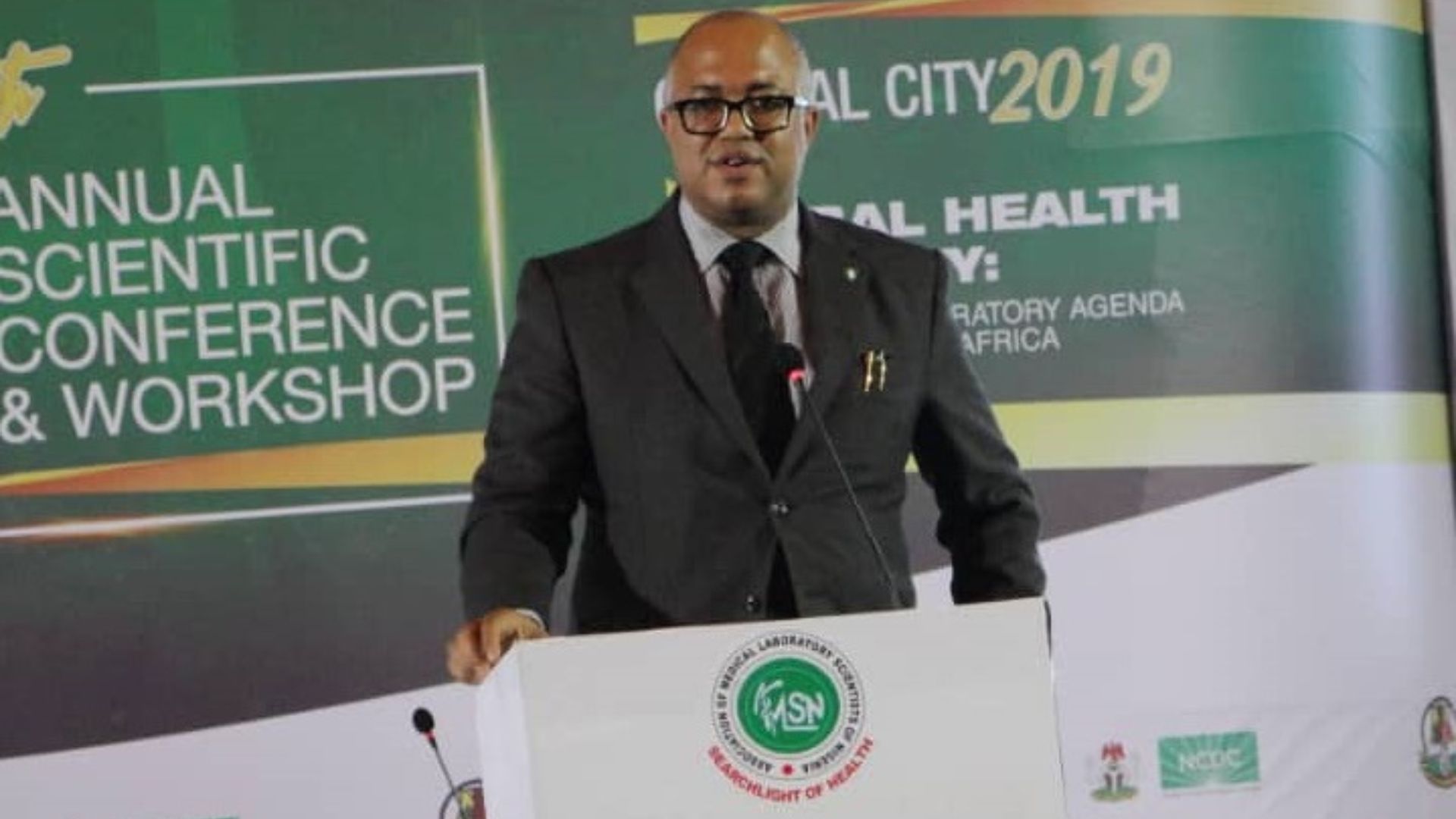The Association of Medical Laboratory Scientists of Nigeria (AMLSN) has concluded its 60th Annual Scientific Conference and Annual General Meeting in Umuahia with a renewed call for strengthening standards and regulatory frameworks in Nigeria’s healthcare system.
Key Resolutions and Recommendations
In a communiqué issued after the three-day conference, themed “Current Innovations in Medical Laboratory Services: Navigating Global, Regional, and Local Healthcare Realities,” the association emphasized the urgent need for the Federal Ministry of Health to approve the resumption of inspection and monitoring activities for medical laboratories across the country.
The document, signed by Dr. Uche Odionyenma (National President), Abdulsalam Yakubu (National Secretary), and Adeleke Olaoluwa (Chairman, Communiqué Drafting Sub-Committee), highlighted the following key resolutions:
- Mandatory Laboratory Inspections:
- Immediate resumption of the Medical Laboratory Science Council of Nigeria (MLSCN) inspections for all public and private medical laboratories to ensure the quality of diagnostic services.
- Regulatory and Structural Strengthening:
- Empowering the Advisory Committee on External Quality Assessment and supporting the Laboratory Technical Working Group.
- Establishing a Department of Medical Laboratory Services within the Federal Ministry of Health, as recommended by the 2007 Nigerian National Medical Laboratory Policy.
- Leadership and Institutional Reform:
- Addressing the prolonged leadership issues at the Federal College of Medical Laboratory Science and Technology (FCMLST), which has seen no change in over 16 years.
- Upgrading the institution to a National Postgraduate College of Medical Laboratory Science (NPCMLS)to focus on advanced education, research, and innovation.
- Addressing Brain Drain and Manpower Challenges:
- Advocating for centralized internship placements, improved remuneration, and expanded postgraduate opportunities for career development.
- Issuing directives to the National Council on Health for employing more medical laboratory scientists in primary healthcare centres across the 774 local government areas to enhance diagnostic services.
- Infrastructure Modernization:
- Upgrading laboratory facilities in public institutions to meet ISO 15189:2022 standards.
- Modernizing outdated training programs to produce globally competitive professionals.
Legislative and Governmental Support
At the conference, Hon. Benjamin Okezie Kalu, Deputy Speaker of the House of Representatives, represented by Trumps Emma Eke from the National Population Commission, reaffirmed the National Assembly’s commitment to:
- Empowering the MLSCN as the sole regulator for medical laboratory science.
- Supporting the upgrade of the FCMLST to an NPCMLS.
- Increasing healthcare budgets to modernize infrastructure and drive innovation in medical laboratory services.
Insights from Key Stakeholders
Prof. Madu Ebibisi Ofor Iwe, Vice Chancellor of Michael Okpara University of Agriculture, stressed the importance of innovation in diagnostics to improve healthcare outcomes. He highlighted that embracing advancements in medical laboratory science is essential for ensuring better health and well-being.
Governor Alex Otti, represented by Commissioner for Health Prof. Enoch Ogbonnaya Uche, reiterated his administration’s commitment to healthcare reform, emphasizing investments in infrastructure and budgetary allocations to improve healthcare delivery in Abia State.
Challenges and Call for Action
The conference also drew attention to the rising inflation and insecurity that have hampered healthcare affordability and workforce safety. AMLSN called on the government to take swift action to address these challenges, ensuring that Nigerians have access to affordable, high-quality diagnostic services.
Commitment to Unity and Excellence
AMLSN restated its dedication to professionalism, unity, and adherence to lawful practices. The association reaffirmed its goal of reducing capital flight due to medical tourism by ensuring that accredited public facilities meet global standards and adequately serve the healthcare needs of Nigerians.
The resolutions from the conference underscore the critical role of medical laboratory services in Nigeria’s healthcare system and the need for collective efforts to advance the profession and improve healthcare delivery nationwide.




